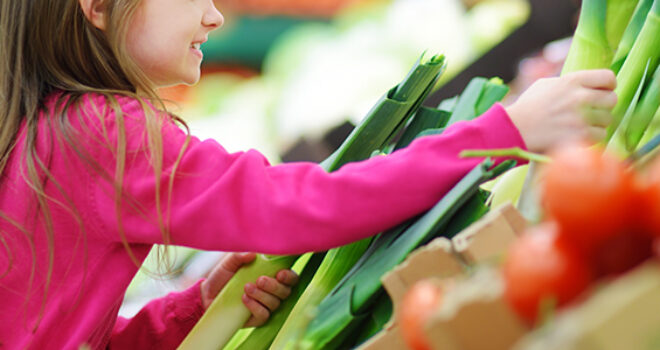How to avoid veggie battles with your children? Generations of parents have racked their brains over this question. Researchers have now made a step forward and have come up with some answers, as part of a project by Inra, which combined just under 20 studies. Patience, repetition, and setting the example yourself: these are the three principles that will solve your quandary!
Children under two years of age often regard vegetables as their worst enemy! However they are vital allies in a child’s growth and health because they are so rich in vitamins, minerals and dietary fibre. In the framework of the European HabEat Project, which Inra coordinated, the researchers studied the determining factors for the development of eating behaviours in children. Their work led to some interesting insights, which were compiled in a guide for parents of young children.
Early feeding experiences
There’s only one way to get children to appreciate new flavours and that is by giving them the opportunity to discover them. The studies showed that if you introduce a variety of pureed vegetables at the beginning of weaning, children are more likely to accept new vegetables as they grow older. However, these vegetables must be offered in small quantities, which can be increased progressively.
According to the studies, exposing the child repeatedly to a new vegetable also helps increase the intake of this vegetable. There is no need to mask the vegetable’s taste because, in most cases, just serving them the vegetable on its own is enough! Getting older children to accept new flavours is more difficult and some vegetables are just more difficult to stomach for children than others.
When loving vegetables becomes child’s play!
Other elements also play a vital role, such as breastfeeding. The results indicate that prolonged breastfeeding is associated with an increased intake of fruit and vegetables during childhood. And this is perfectly logical as the taste of mother’s milk is influenced by what the mother has eaten, which may help the child to accept a varied diet as solid foods are introduced.
Finally, the example that parents set should not be underestimated either. Parents’ choices and attitudes will influence a child’s reaction to food. Mealtimes with children are a perfect opportunity to encourage them to love vegetables!
Moreover, the guide suggests some simple tricks to help children develop a healthy relationship with food, such as serving small portions or looking out for signs that your child is hungry or full.



 Artichoke
Artichoke  Celery
Celery  Vegetable growing: Brussels sprout
Vegetable growing: Brussels sprout 








